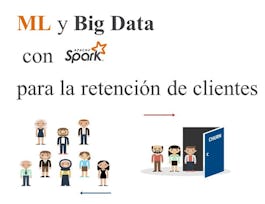By the end of this course, learners are empowered to implement data-driven process improvement objectives at their organization. The course covers: the business case for IoT (Internet of Things), the strategic importance of aligning operations and performance goals, best practices for collecting data, and facilitating a process mapping activity to visualize and analyze a process’s flow of materials and information. Learners are prepared to focus efforts around business needs, evaluate what the organization should measure, discern between different types of IoT data and collect key performance indicators (KPIs) using IoT technology. Learners have the opportunity to implement process improvement objectives in a mock scenario and consider how the knowledge can be transferred to their own organizational contexts.


Data-Driven Process Improvement
This course is part of Data-Driven Decision Making (DDDM) Specialization
Taught in English
Some content may not be translated


Instructors: Peter Baumgartner
15,455 already enrolled
Included with 
Course
(188 reviews)
97%
Recommended experience
What you'll learn
Develop a plan to align operational and performance goals
Devise a data collection strategy and validate data integrity
Understand how to create current and future state process maps
Prioritize data gaps for root cause analysis
Skills you'll gain
Details to know

Add to your LinkedIn profile
3 quizzes
Course
(188 reviews)
97%
Recommended experience
See how employees at top companies are mastering in-demand skills

Build your subject-matter expertise
- Learn new concepts from industry experts
- Gain a foundational understanding of a subject or tool
- Develop job-relevant skills with hands-on projects
- Earn a shareable career certificate


Earn a career certificate
Add this credential to your LinkedIn profile, resume, or CV
Share it on social media and in your performance review

There are 4 modules in this course
This module covers the business case for establishing a data strategy, including why it is important, from a strategic level, to align your operations and performance goals before you undertake implementation.
What's included
6 videos7 readings1 quiz1 discussion prompt
This module covers best practices for collecting data.
What's included
5 videos4 readings1 quiz
This module will prepare you to develop current state process maps, prioritize data gaps, and formulate future state process maps.
What's included
5 videos5 readings1 quiz1 discussion prompt
This module provides an opportunity to bridge theory and practice. Learners apply knowledge from this course to solve a business problem.
What's included
2 videos1 peer review
Instructors

Recommended if you're interested in Business Strategy

The State University of New York

Coursera Project Network
Why people choose Coursera for their career




Learner reviews
Showing 3 of 188
188 reviews
- 5 stars
75.78%
- 4 stars
14.73%
- 3 stars
5.78%
- 2 stars
2.63%
- 1 star
1.05%
New to Business Strategy? Start here.

Open new doors with Coursera Plus
Unlimited access to 7,000+ world-class courses, hands-on projects, and job-ready certificate programs - all included in your subscription
Advance your career with an online degree
Earn a degree from world-class universities - 100% online
Join over 3,400 global companies that choose Coursera for Business
Upskill your employees to excel in the digital economy
Frequently asked questions
Access to lectures and assignments depends on your type of enrollment. If you take a course in audit mode, you will be able to see most course materials for free. To access graded assignments and to earn a Certificate, you will need to purchase the Certificate experience, during or after your audit. If you don't see the audit option:
The course may not offer an audit option. You can try a Free Trial instead, or apply for Financial Aid.
The course may offer 'Full Course, No Certificate' instead. This option lets you see all course materials, submit required assessments, and get a final grade. This also means that you will not be able to purchase a Certificate experience.
When you enroll in the course, you get access to all of the courses in the Specialization, and you earn a certificate when you complete the work. Your electronic Certificate will be added to your Accomplishments page - from there, you can print your Certificate or add it to your LinkedIn profile. If you only want to read and view the course content, you can audit the course for free.
If you subscribed, you get a 7-day free trial during which you can cancel at no penalty. After that, we don’t give refunds, but you can cancel your subscription at any time. See our full refund policy.





